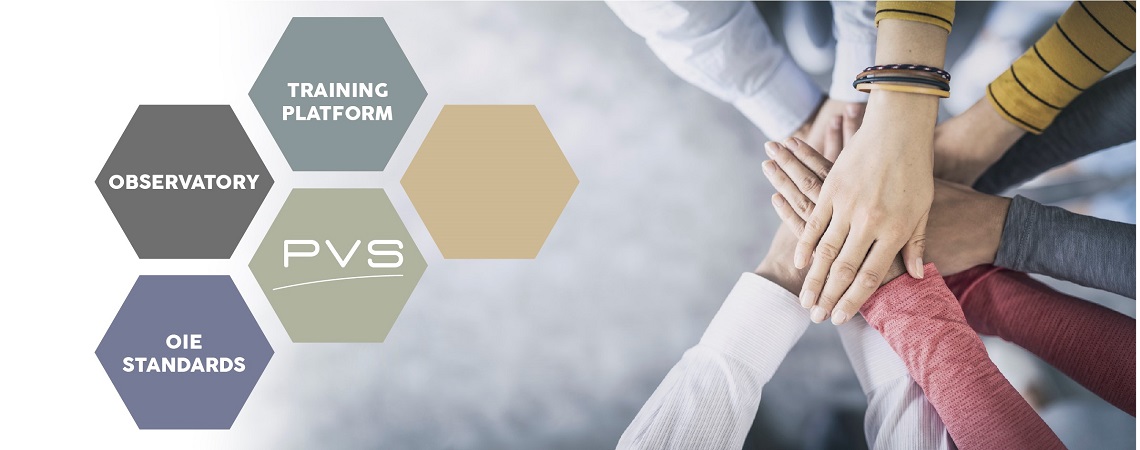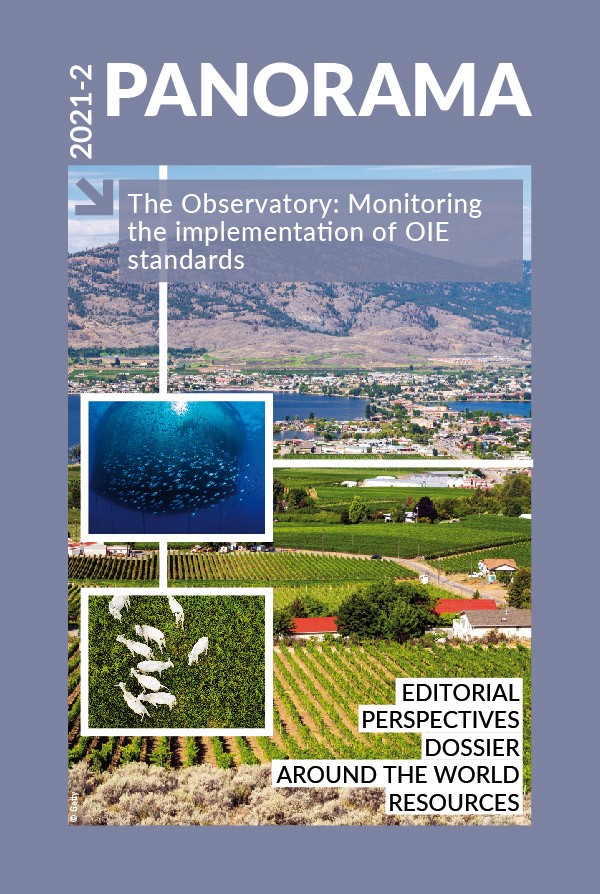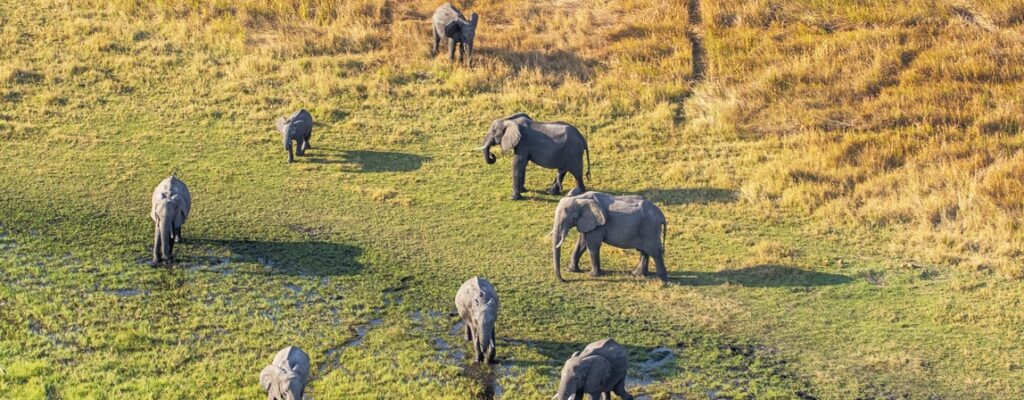Perspectives Posted on 2021-12-20 15:06:44
OIE actions
Strengthening the credibility of the international system and collective action
How to engage OIE Members in a new mechanism monitoring the implementation of OIE standards
Keywords
Authors
Jean-Philippe Dop(1) & Matthew Stone(2)
(1) Former Deputy Director General, Institutional Affairs and Regional Activities, World Organisation for Animal Health (OIE).
(2) Deputy Director General, International Standards and Science, World Organisation for Animal Health (OIE).
The World Trade Organization Agreement on the Application of Sanitary and Phytosanitary Measures (SPS Agreement) recognises that all trading partners have differing sanitary statuses, and different levels of risk that they are willing to accept. This has the potential to create technical barriers to trade that could undermine the benefits of the rules-based international trade system. The SPS Agreement obliges countries to harmonise their national sanitary rules with international standards, including those of the OIE. There is little need to remind anyone, at this time of a global pandemic, that the OIE standards also contribute to One Health and global health when it comes to threats such as zoonotic disease or antimicrobial resistance.
The ambition of the OIE Observatory is to become an integrated mechanism for monitoring the implementation of OIE standards
How well are we doing as an international community with that harmonisation? Are we making progress? How could we improve? What support do OIE Members need? These are difficult questions, and they become even harder in a global context in which cross-border issues are becoming more and more complex. Moreover, the trust between trading partners is subject to numerous threats, and appears increasingly fragile outside established alliances.
To respond to these concerns, the OIE must analyse and report on whether its international standards are being used well, used only partially or not used at all by OIE Members, to identify progress as well as obstacles in their implementation. Knowledge and analysis of such realities should support the OIE and its Members in their decision-making and systems improvements. It will also help the OIE to understand how better to support Members in their efforts to put the OIE standards into practice.
The ambition of the OIE Observatory is to become an integrated mechanism for monitoring the implementation of OIE standards. This requires, on the one hand, rules for managing and processing information and, on the other, a network of actors, producers and/or users of information, who share a common vision of exchange, openness, learning and systems improvement.
Transparency of information and dialogue are key elements for effective and sustainable change. To that end, a strategy of engagement is needed to accompany the development of the OIE Observatory, to strengthen the discussion of standards implementation with stakeholders and Members, to measure results, and to assess the quality of decisions taken to address Members’ needs, particularly in terms of capacity building and the standard-setting process. This type of exchange with stakeholders and Members was tested during the 24th Conference of the OIE Regional Commission for Africa, from 9 to 11 February 2021. The 2020 Technical Item, ‘Required competencies of Veterinary Services in the context of international trade: opportunities and challenges’, was presented in an innovative format with a video and interactive session with Delegates. The goal was to show a concrete application of the OIE Seventh Strategic Plan and its vision, by highlighting the link between OIE international standards, OIE Observatory insights into their implementation, and OIE programmes; in particular, the PVS Pathway and the new OIE Training Platform to strengthen the capacities of Members.
The OIE is committed to co-designing the OIE Observatory and collaborating in its implementation through a strong engagement with Members and Partners, for our collective benefit. This approach is all the more important as the Organisation reaches its 100th anniversary in 2024.
https://doi.org/10.20506/bull.2021.2.3281












